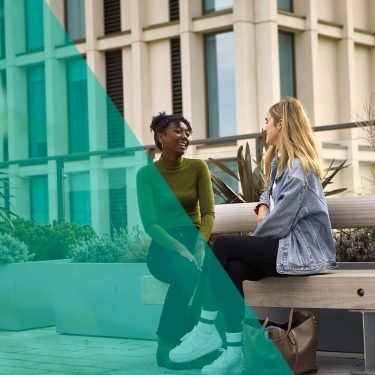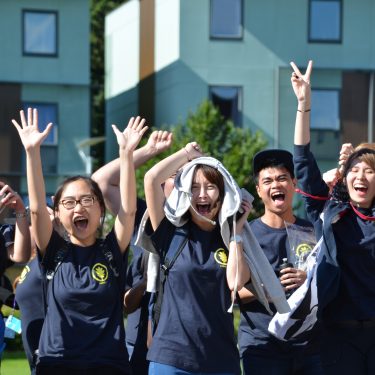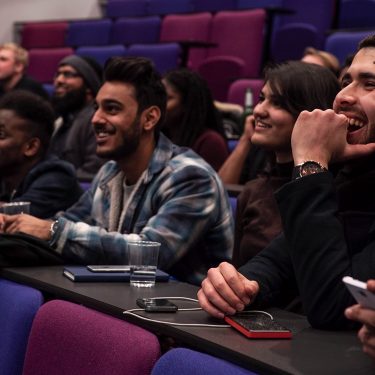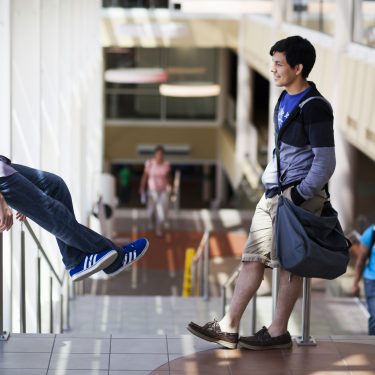Professor Stephanie Marshall is Vice-Principal (Education) at Queen Mary University of London
Since March of this year, ‘Build Back Better’ is a phrase we have heard on repeat as the Government works towards a better nation in the wake of the coronavirus pandemic.
The same phrase can very well be applied to universities in terms of our own priorities. With so much change over the past 18 months, what lessons are there to be learned in best serving students? After all, it is important to constantly reflect and evolve. If we think about a forward-look, it is impossible to ignore one of the most talked about aspects across both the media and the higher education sector: online learning.
While it is no substitute for face-to-face learning, the pandemic has shown it can be a beneficial experience.
Our data has also shown us it has been well-received, particularly by those with disabilities. Despite experiencing challenges with online learning, as we all did in adjusting to a largely alien concept, these students reported a vastly easier experience on account of the benefits of technology and the opportunity to learn at their own pace provides. There are clear positives in the flexibility remote learning affords – and it is certainly a useful tool to have – no-one would argue it’s a perfect fit for everyone. We have heard from many of our students that they have enjoyed online lectures, finding them engaging and challenging – as they should be.
On the other hand, one consistently-echoed point was that they missed in-person interaction.
Students understandably want to have the chance to discuss and dissect what they’ve just taken in with their peers. On a social level, the key thing they missed about lectures was the meeting with friends before and after. So, in the immediate sense and longer term, we have to ensure that community feel is tangible in every corridor, classroom or learning space, and is not lost. We have reacted to this by making large group teaching more of an interactive experience. Students don’t want to just be dictated to. They want to feel involved. Implementing more quizzes, polls and other similar tools has been one way of addressing this, and will almost certainly become the norm.
Similarly, that’s why we have re-introduced more face to face learning. It’s important to bear in mind that the virus has not gone away, and there is the chance it disrupts learning even further. Each and every university will need to be flexible. But the ever-lingering threat of the virus won’t stop us from doing what’s best for students.
Whatever the academic literature says about delivering teaching, nothing beats asking your own students what’s working and what’s not.
In fact, Queen Mary has been looking at implementing new methods to give students a better experience from even before the pandemic. In our 2030 Strategy, we made a commitment to ‘develop, implement and promote new pedagogical approaches using the latest, or our own bespoke, technological advances to enhance the student experience’. As part of this, we’ve invested in developing a mixed mode education (MME) approach. MME brings together technology and pedagogy to support an inclusive and engaging learning experience for students, whether they are joining on-campus or remotely if they cannot attend in-person.
Over 100 teaching rooms have been equipped with technology, including audience-facing cameras and, in some cases, in-room microphones and additional screens to display remote participants. This enables interactions between the educator and students, as well as between students. The Queen Mary Academy, which provides University-wide support and development for staff engaged in education and research, has also trained over 1000 staff in using the MME approach and the benefits it offers to their pedagogic approach. A number of our larger teaching rooms have MME Stewards or Teaching Assistants, who support the educator in the effective running of the session.
Engaging with students and staff has been vital since the start of pandemic, and this remains equally true with regard to shaping the university experience now and into the future.
There are plenty of examples beyond education of policies and practices failing because they were designed by those in ivory towers. As we look forward, we need to remember it is impossible to design a successful system without putting those on the ground right at the very centre of it. We know from this ongoing conversation with students how much they appreciate a direct line of communication. In one instance of how this can look, senior leadership at Queen Mary have been meeting weekly with different representatives from the Student Union to discuss the burning issues.At its core, Building Back Better means for us at Queen Mary supporting different ways to engage students, rather than having a one-track approach. And we must not forget our values – being inclusive, proud, ambitious, collegial and ethical.
There is still progress to be made; and more work needs to be done to bridge digital divides.
There are mature students who we know have struggled balancing their studies and home schooling with only one laptop in the house. We can’t let circumstances and responsibilities hamper students’ chances to perform as well as they can. In addition to shedding light on issues like this which had been largely hidden from sight before, the pandemic has forced us to question much established thinking as well as throwing up new areas for investigation.
And we must not forget that those in their first year have had close to two years of interrupted education at secondary school.
It certainly raises an interesting question around the need for social learning, having been largely independent for quite some time now. Eighteen months on from the start of this tumultuous period, a rethink is now underway in how best to deliver a university education. And undoubtedly a good number of the changes will be here to stay, providing a deeper, richer, and more satisfying education – for students, employers and, indeed, a range of stakeholders. As we stride towards a return to normality, there’s no reason why ‘normality’ cannot be reshaped into an even better offering. Students are at the very centre of this.
This piece is part of the ongoing series of blogs and case studies that we will be publishing over the next few months. It represents the views of the author, and is part of the broad conversation the Student Futures Commission is facilitating.







